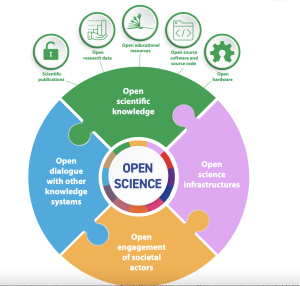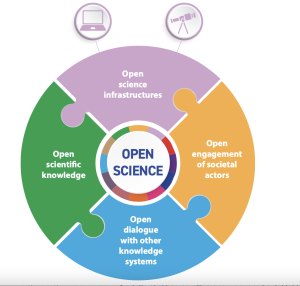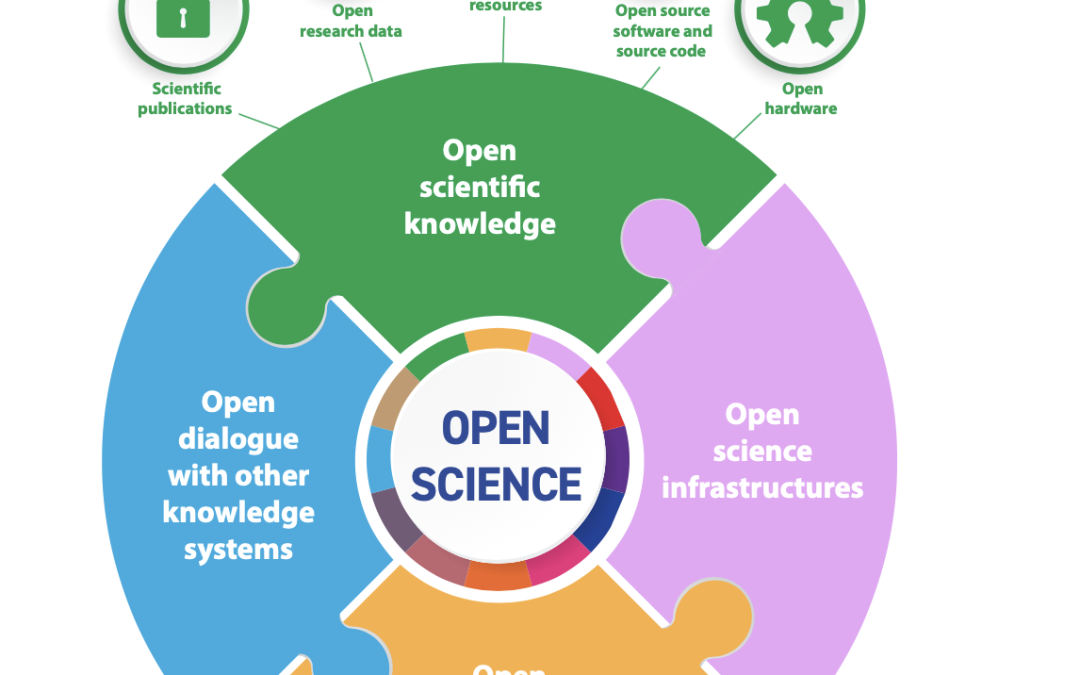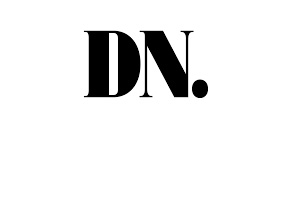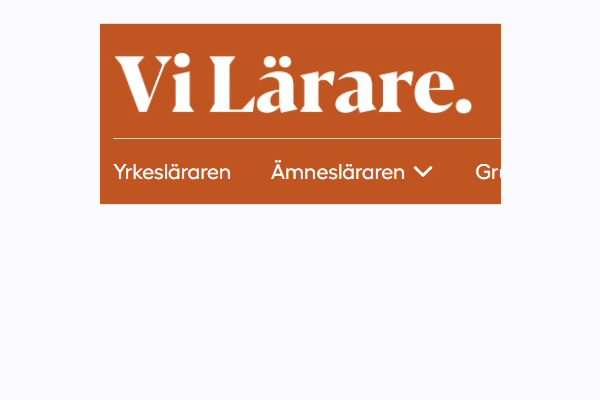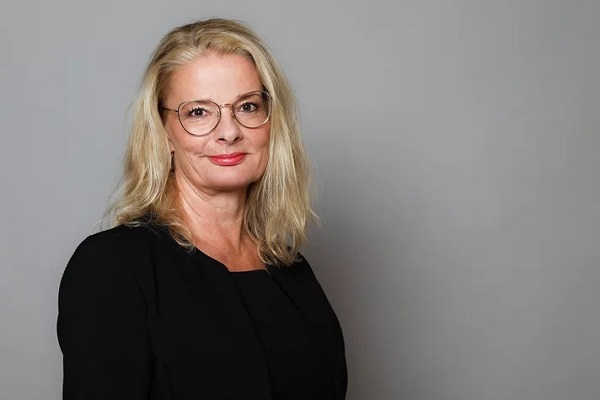The General Conference of the United Nations Educational, Scientific and Cultural Organization (UNESCO), meeting in Paris, from 9 to 24 November 2021, at its 41st session.
Läs mer här
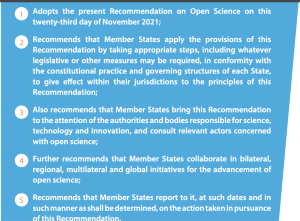
The aim of this Recommendation is to provide an international framework for open science policy and practice that recognizes disciplinary and regional differences in open science perspectives, takes into account academic freedom, gender-transformative approaches and the specific challenges of scientists and other open science actors in different countries and in particular in developing countries, and contributes to reducing the digital, technological and knowledge divides existing between and within countries. 2. This Recommendation outlines a common definition, shared values, principles and standards for open science at the international level and proposes a set of actions conducive to a fair and equitable operationalization of open science for all at the individual, institutional, national, regional and international levels.3. To achieve its aim, the key objectives and areas of action of this Recommendation are as follows:i. promoting a common understanding of open science, associated benefits and challenges, as well as diverse paths to open science;ii. developing an enabling policy environment for open science; iii. investing in open science infrastructures and services;iv. investing in human resources, training, education, digital literacy and capacity building for open science;v. fostering a culture of open science and aligning incentives for open science;vi. promoting innovative approaches for open science at different stages of the scientific process; vii. promoting international and multi-stakeholder cooperation in the context of open science and with view to reducing digital, technological and knowledge gaps.

